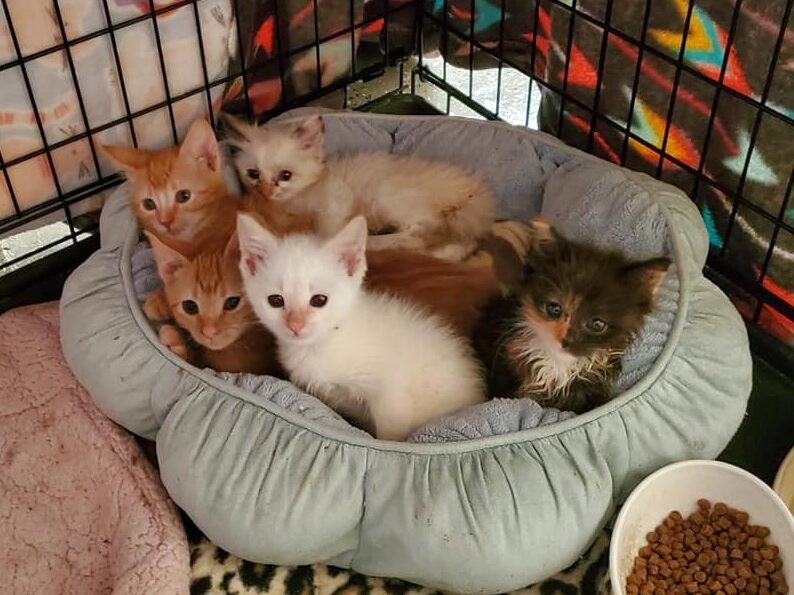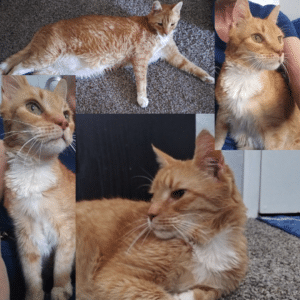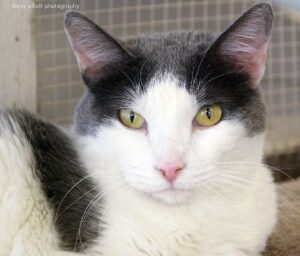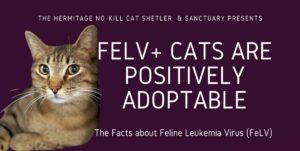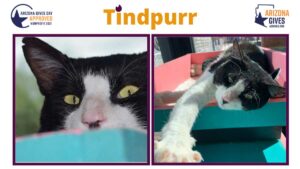Educational Blog
Cerebellar Hypoplasia (CH)
Jul 21, 2021 | adoption, cat needs, cerebellar hypoplasia, health
What is CH? Cerebellar Hypoplasia or CH is a condition in which a cat’s cerebellum is underdeveloped. https://www.hermitagecatshelter.org/wp-content/uploads/GlowUp-1.mp4 What is the cerebellum? The cerebellum is located in the back of the brain and is responsible for fine motor skills and coordination. So, kittens/cats with CH tend to be wobbly and uncoordinated. How does a kitten get CH? This most often occurs in utero when an unvaccinated, pregnant queen contracts feline panleukopenia virus (a virus similar to parvo in dogs). “The ...
Hyperthyroidism 101: Camelot’s Story
May 5, 2021 | cat needs, health, hyperthyroidism
Hyperthyroidism in Cats 101 You may have heard of hyperthyroidism in people, but did you know that cats can have this medical condition too? Hyperthyroidism is usually caused by a…
Read More → What to Expect When You’re Expecting… to Adopt a Cat!
Apr 23, 2021 | adoption, cat behavior, cat introductions, cat needs, new cat, tips
THINGS TO CONSIDER BEFORE YOU DECIDE TO ADOPT A CAT: Can I afford it? Your new cat will require food, a litter box, litter, vet care, toys, etc. This can…
Read More → The Facts about FeLV
As one of very few accredited cat sanctuaries in the US that rescues cats with FeLV, we at The Hermitage would like to spread awareness and understanding of this common…
Read More → The Facts about FIV
FIV (Feline Immunodeficiency Virus), an immunocompromising disease, affects about 3% of cats in the U.S. Most of the clinical signs of FIV are non-specific, so any cat with persistent or…
Read More → 
